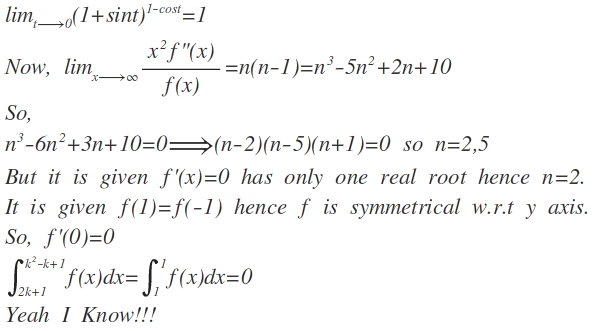Yeah I know!
x → ∞ lim f ( x ) x 2 f ′ ′ ( x ) t → 0 lim ( 1 + sin t ) 1 − cos t = n 3 − 5 n 2 + 2 n + 1 0
Let f be a polynomial of degree n satisfying the equation above. Given that f ′ ( x ) has only one real root and f ( 1 ) = f ( − 1 ) .
If there exists a real k satisfying f ′ ( k ) = 0 , find ∫ 2 k + 1 k 2 − k + 1 f ( x ) d x .
The answer is 0.
This section requires Javascript.
You are seeing this because something didn't load right. We suggest you, (a) try
refreshing the page, (b) enabling javascript if it is disabled on your browser and,
finally, (c)
loading the
non-javascript version of this page
. We're sorry about the hassle.
1 solution

Can you explain why n=2 implies f'(x) has only one real root. Your explanation should be if n=5 then the condition of f(1)=f(-1) would not have been valid and as the leading term cannot be zero n is not equal to 5.